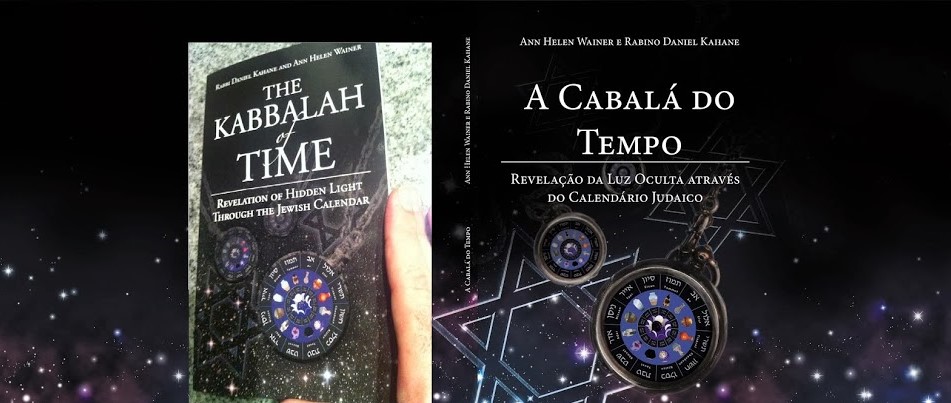HAAZINU: Their wine is the
bitterness of serpents, and the bitterness of the ruthless cobras. (Deuteronomy 32:33)
Positive light: Their deep Torah wisdom came from the bitter
serpents [enemies/exiles], and their ability to be a head (and to have a deep
mind), from dealing with ruthless cobras [enemies/exiles].
HAFTORAH: 33. G-d is He who has fortified me with strength; and
He looseth perfectly my path. (II Samuel 22:33)
QUALITY FOR ACQUIRING THE TORAH: Loves the creations/people (Ohev et HaBriot)
PROPHET: Chabakuk
LEVITICAL CITY: Jarmuth
The thirty-third week of
the year is the week of Pessach Sheini
and Lag Ba’omer. In Haazinu, the verse speaks again of the
bitter punishment faced by the Jewish people, comparing it to wine. Wine is
also a known metaphor for the essence and the hidden part of the Torah,
associated primarily with the works of Rabbi Shimon Bar Yochai. The joy of Lag Ba’omer comes in contrast to the
suffering and the mourning that took place during omer period, with the passing of 24,000 of Rabbi Akiva’s students. Rabbi
Shimon Bar Yochai himself acquired this “wine” through much suffering. In the
end, he said that the sufferring he endured was very much worth it.
In the Haftorah verse for this week, King David
exclaims that G-d is his strength. The word used for strength is chayil. As explained in the beginning of
this book, chayil is a known
reference to the Torah, the source of King David’s power. The second part of
the verse contains a word that is written (the ksiv) differently than how it is verbalized (the kri). The word written is darchoh (His way) not darchi (my way). The verse would
therefore read, “G-d makes clear to me His perfect way.” The word for perfect
used is tamim, which is also a
reference to the Torah, as King David himself says in the psalms: “Torat Hashem Tmimah Meshivat Nafesh,” the Torah of G-d is perfect, it restores the
soul.
The quality of this week is “loves the
creations” (Ohev Et Habriot), the
third term used by Rabbi Meir in the description of those that study Torah for
its own sake (Lishmah). The first day
of this week, Pessach Sheini, is the yahrzeit of Rabbi Meir and Rabbi Yehuda Bar Ilai, and, as already
mentioned, Lag Ba’omer is the yahrzeit of Rabbi Shimon Bar Yochai (Rashbi). Rashbi is the quintessential example of someone who studies Torah Lishmah. The quality Ohev Et Habriot is also the term used by
Hillel in Pirkei Avot to describe Aharon. Aharon is the leader of the Jewish
people associated with the sefirah of
Hod, and Lag Ba’omer represents Hod
shebeHod in the omer count.
This week’s prophet is Chabakuk. Just
as Lag Ba’omer is about the revelation of the essence of the omer itself, Chabakuk was the one that
prophecized the verse in which to encompass all of the Torah: Tzadik be’Emunatoh Yichyieh, "the Tzadik lives by his faith." (Chapter 2:5)
This verse also perfectly describes Rabbi Shimon Bar Yochai, as well as Rabbi
Meir, Rabbi Yehuda Bar Ilai, and all the other tzadikim
connected to this week. Chabakuk also represents the concept of the revelation the deep secrets of the Torah, as we find in the end of Perek Shirah:
Rabbi Yeshayah, student of Rabbi
Chanina ben Dosa, fasted eighty-five
fasts. He said, Dogs, about which it is
written, “The dogs are brazen of spirit;
they do not know satisfaction” (Isaiah
56:11) – shall they merit saying a song?
An angel answered him from Heaven and
said to him, Yeshayah, until when will
you fast over this? It is an oath from the
Holy One, Blessed is He; from the day
that He revealed His secret to Havakuk
the prophet, He has not revealed this
matter to anyone in the world.
The
levitical city for this week is Jarmuth. It appears that this city is also called Ramoth and
Remeth, which mean "height" or "heights." However, Ramoth and Yarmuth contains the letter Mem Vav Tav, which spell Maveth, death. Interestingly, Ramoth in
Chronicles is spelled with an alef. Alef Mem Tav spells Emeth, truth (similar to Remeth,
another spelling for this city). The name of this city seems to encompass the
themes of Lag Ba’omer discussed
above, heights and truth in the context of suffering and
death.
The Tanach recounts that the city was conquered miraculously by Yehoshua (Ramoth with an alef contains the word Re’em, perhaps a reference to Yehoshua himself, who is compared to an animal called a Re'em).
The city was abandoned during the first exile, but the Jewish people returned to the city in the times of Nechemia. Tel Yarmuth
is an important archeological site in Israel today.